There are hundreds and thousands of interesting facts about Hinduism. Hinduism is the oldest religion globally, and history can be traced back to 5000-10,000 B.C. The practitioners and scholars refer to it as a Sanātana Dharma (Eternal Religion). Hinduism is developed out of Brahmnisim and it has no founder.
Many scholars and practitioners also believe that all the religions (Buddhism, Christianity, Confucianism, Islam, Jainism, Judaism, Shinto, Sikhism, Taoism, and Zoroastrianism) have originated from Hindusim, originally the Sanātana Dharma.
Hinduism is the third-largest religion in the world with 1.1 billion adherents worldwide. It accounts for 16% of the world’s total population. Nepal (81.3%) and India (79.28%) are countries with a majority of Hindus populations.
In this article, we are going to cover 20 such interesting facts about Hinduism. Here are they:
Interesting Facts About Hinduism
1. The Real name is Sanātana Dharma
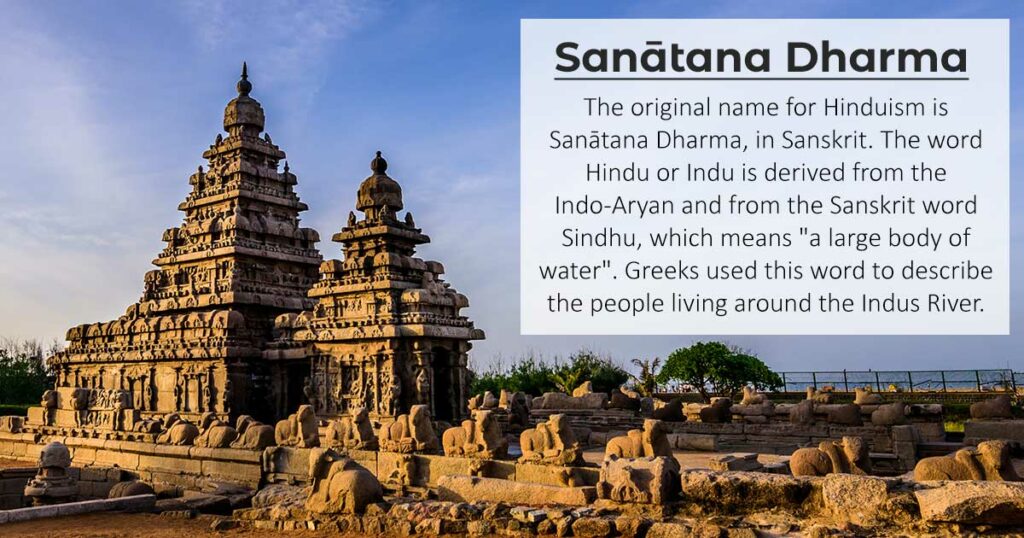
The original name for Hinduism is Sanātana Dharma, in Sanskrit. The word Hindu or Indu is derived from the Indo-Aryan and from the Sanskrit word Sindhu, which means “a large body of water”. Greeks used this word to describe the people living around the Indus River.
By the 13th century, India became popular by the name Hindustan. It is believed that English writers added -ism to Hindu in In the 19th century. Later, it was adopted by the Hindus themselves.
2. The goal of life in Hinduism is to attain “Moksha” or “Salvation”
The goal of life in Hinduism is to attain salvation. According to Hindusim, the purpose of life is to achieve Dharma, Artha, Kama and Moksha.
3. Hinduism Believes in Only One God
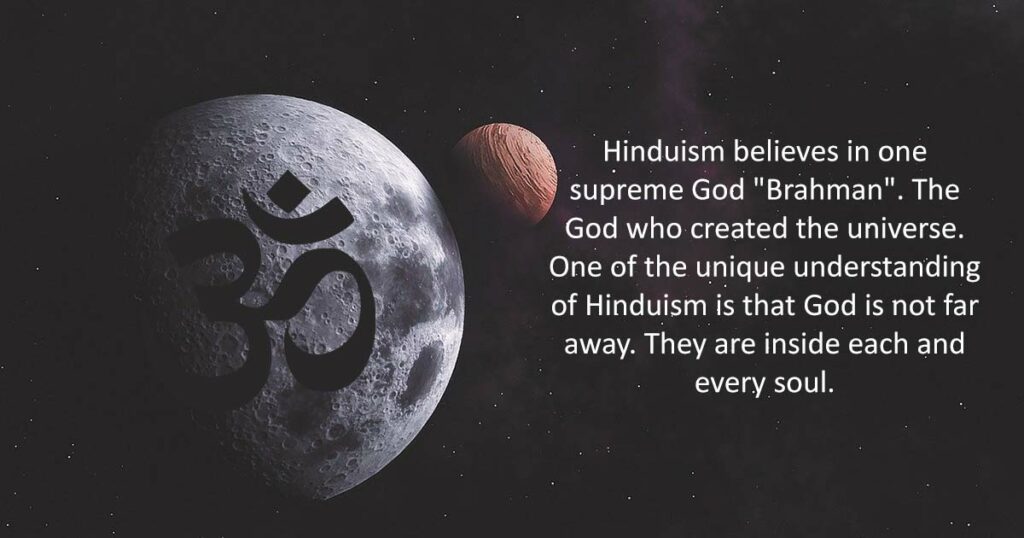
Hinduism believes in one supreme God “Brahman”. The God who created the universe. One of the unique understanding of Hinduism is that God is not far away. They are inside each and every soul.
Brahman
Hinduism cannot be classified as Polytheistic or Monotheistic. Rather, Monism is the Hindu belief that everything is Brahman (God).
Within the religion, Gods and Goddesses possess different aspects of Brahman. For example:
- Lord Shiva: Lord Shiva is known as a destroyer within the Trimurti that includes Brahma and Vishnu.
- Brahma: Brahma is known as the creator of the universe.
- Vishnu: Lord Vishnu is known as the preserver and protector of the universe.
- Ganesha: Lord Ganesha is the remover of obstacles.
4. Deities
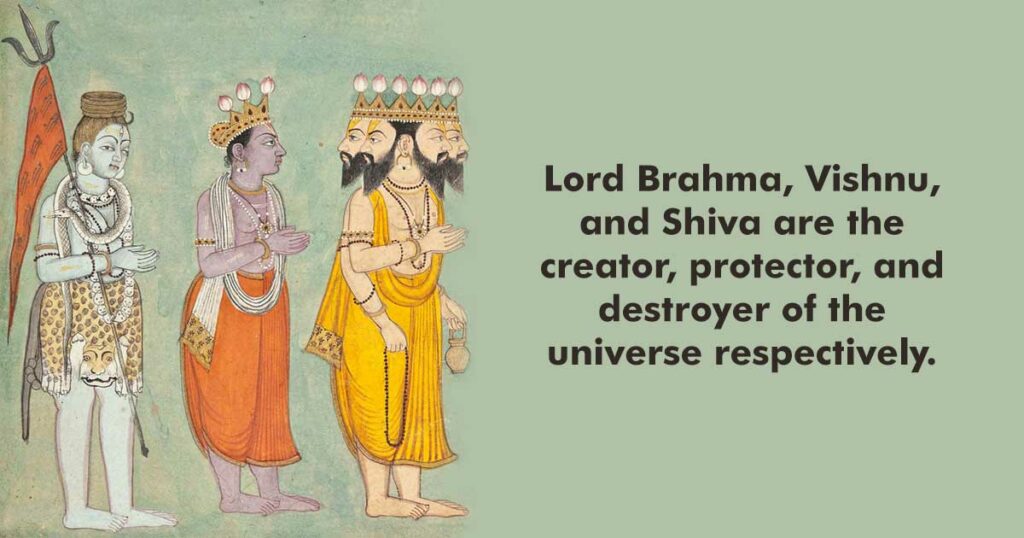
Lord Brahma, Vishnu, and Shiva are the creator, protector, and destroyer of the universe respectively. Besides them, Lord Rama, Krishna, Ganesha, Hanuman and Goddess Durga, Lakshmi, and Parvati are some of the most popular deities in Hinduism.
5. Deities (Male or Female) are worshipped with equal reverence
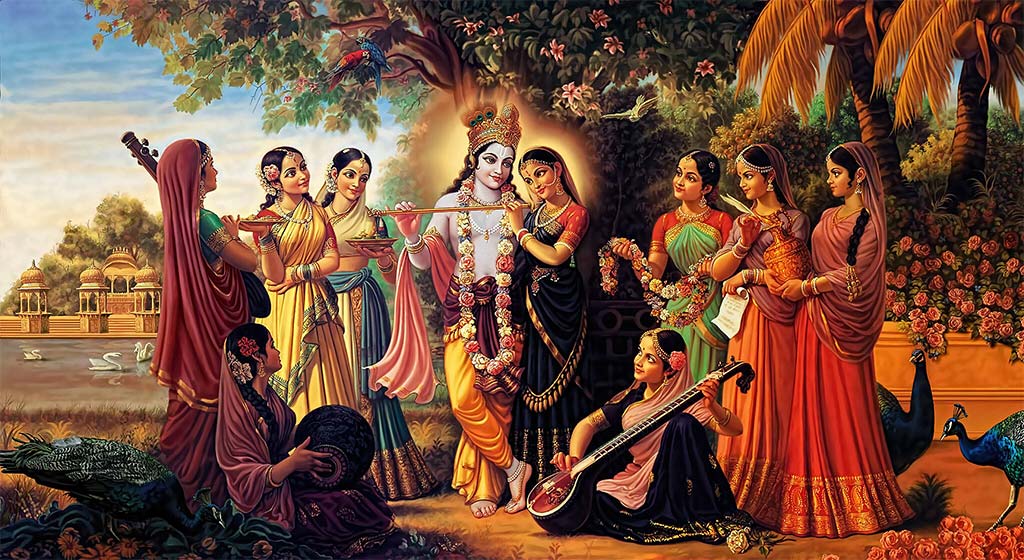
In Hindusim, both male and female deities are worshipped with equal reverence.
6. Circular Concept of Time
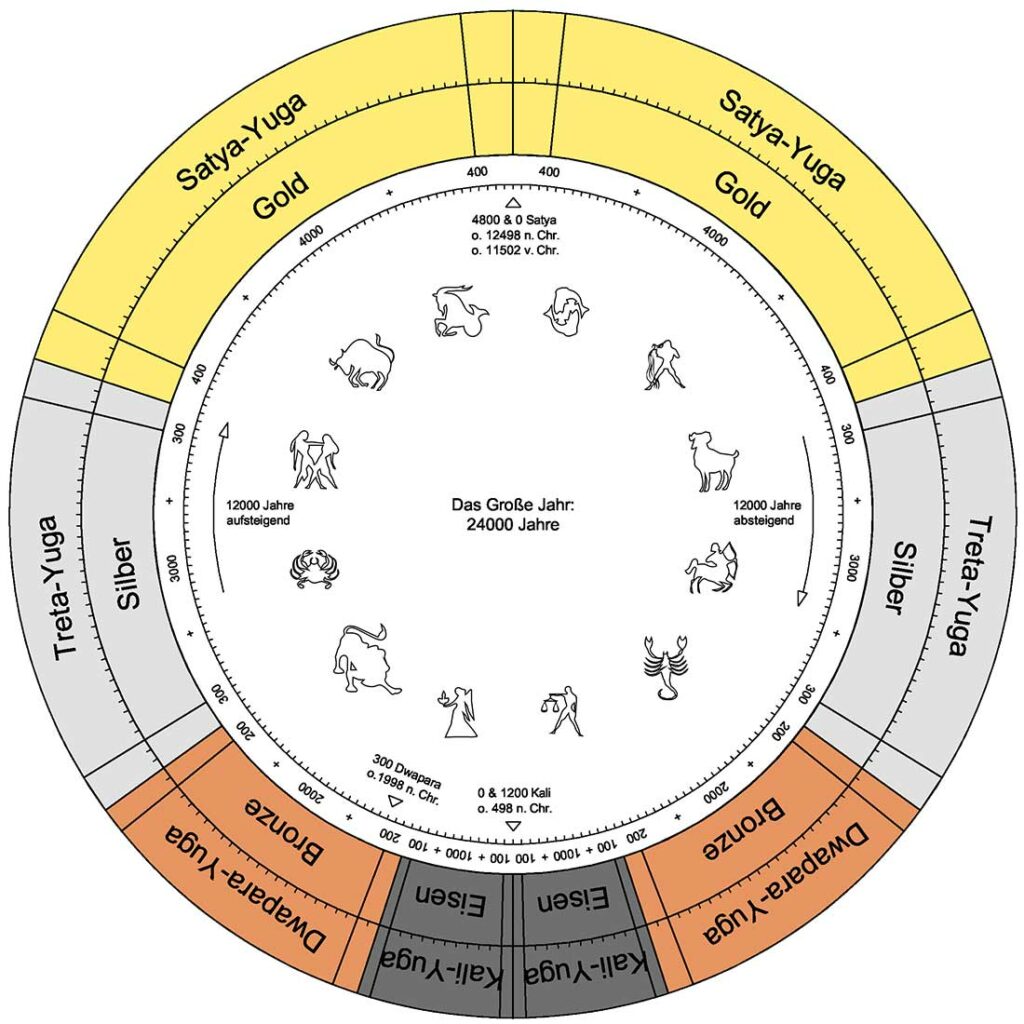
Hinduism believes in a circular rather than a linear concept of time. It is divided into four different ages – the Satya Yuga, Treta Yuga, Dvapara Yuga, and Kali Yuga.
7. Stages of Life
According to Hinduism, there are four stages of life in one life cycle. They are:
- Brahmcharyashram (till 24): Early and student life.
- Grihastahshram (24-48): Life after marriage (Living with wife and children).
- Vanprasthashram (48-72): Leaving for a distant land in the and pray to God. May keep in contact with the family.
- Sanyasashram (72+ or anytime): Discard everything in life including material things, family, wife, and children.
8. Om Represents the Sound of the Universe
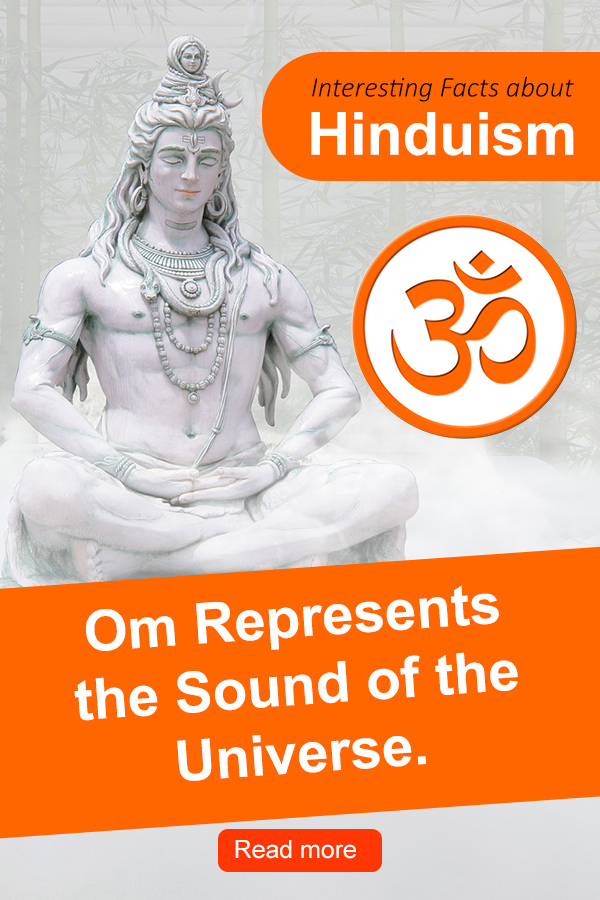
Om is the most sacred syllable, symbol and Mantra in Hinduism. This is also used in other religions like Jainism, Buddhism, and Sikhism. Om is chanted independently or just before every mantra and it is thought to be the sound of the Brahman or the universe. This is also one of the interesting facts about Hinduism.
9. Sacred Number
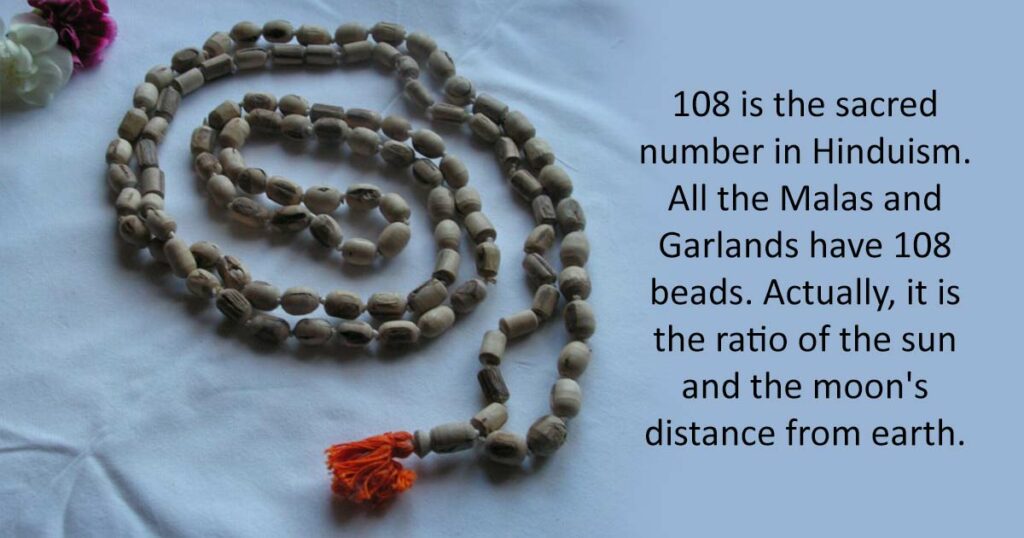
108 is the sacred number in Hinduism. All the Malas and Garlands have 108 beads. Actually, it is the ratio of the sun and the moon’s distance from earth.
10. Vedas, Upanishad and Puranas
There are fours Vedas in Hinduism. These are the Rig Veda, Sama Veda, Yajur Veda and Atharva Veda. There are 18 Puranas, 108 Upanishads.
11. Oldest Holy Book in the World
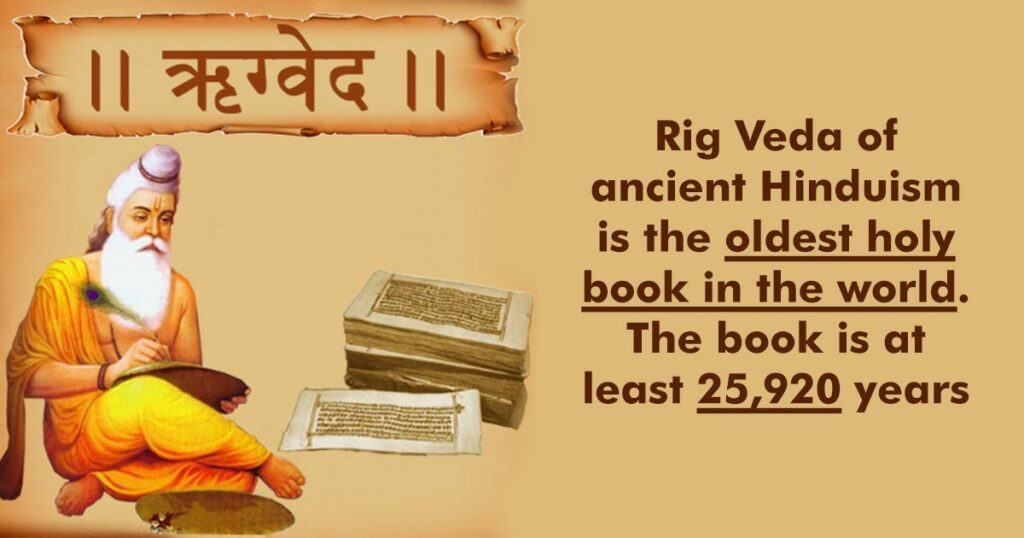
Rig Veda of ancient Hinduism is the oldest holy book in the world. It is likely to be composed between 1700-1100 BCE. The scholars and practitioners of Hinduism believe that the book is at least 25,920 years old.
12. The Best Gifts of Hinduism to the World
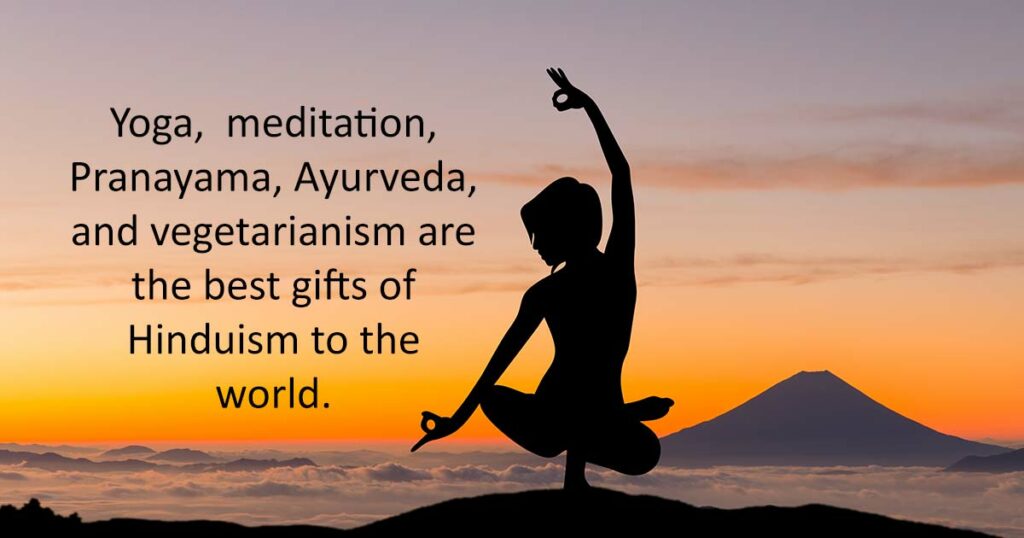
- Yoga, meditation, Pranayama, Ayurveda, and vegetarianism are the best gifts of Hinduism to the world.
- The Neotantra, Navtantra or Tantric sex, Palmistry, acupuncture, acupressure, Jyotish Shastra, and martial arts originated in India in Hinduism.
- Zero, decimal and point systems were also invented in India.
13. Sanskrit – mother of all languages
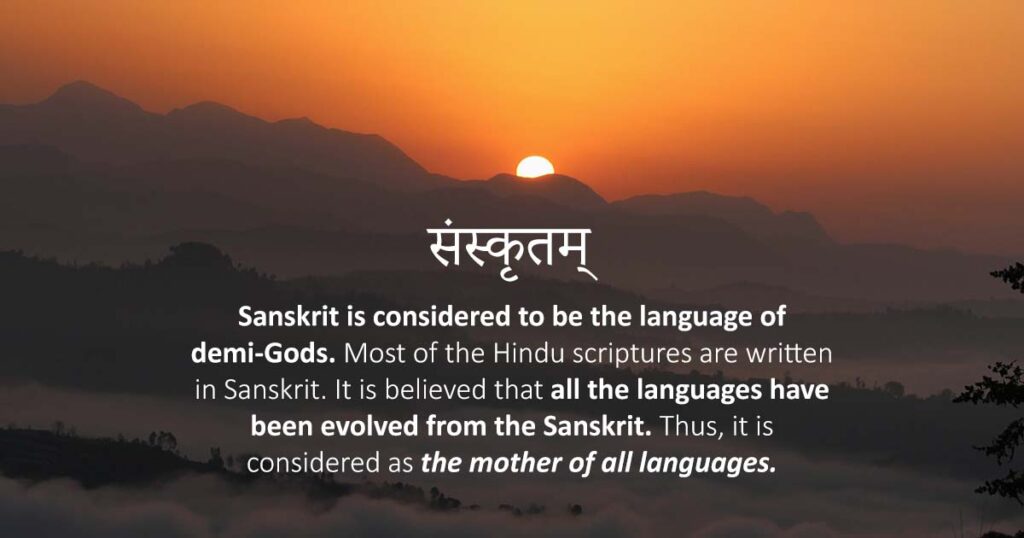
Sanskrit is considered to be the language of demi-Gods. Most of the Hindu scriptures are written in Sanskrit. It is believed that all the languages have been evolved from Sanskrit. Thus, it is considered as the mother of all languages.
14. Hinduism Encourages a Vegetarian Diet
Hinduism highly advocates a vegetarian diet. Most of the Hindus do not prefer non-vegetarian food. According to Hindus texts, Vegetarianism is Satvic, that purifies the body and the mind.
15. Anyone can attain salvation
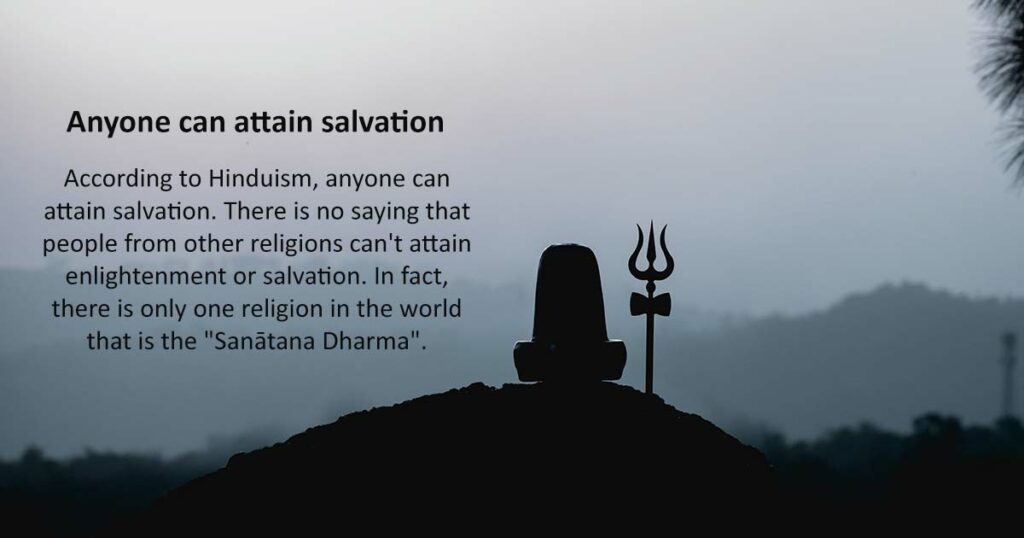
According to Hinduism, anyone can attain salvation. There is no saying that people from other religions can’t attain enlightenment or salvation. In fact, there is only one religion in the world that is the “Sanātana Dharma”.
16. Hindus Believe in Karma
Hinduism believes in Karma. Who does good in life is believed to receive good and who does bad, receives bad. The same theory is followed in other religions like Jainism, Buddhism and Sikhism.
17. Yoga
Yoga is a vital part of Hinduism. The word “Yoga” is derived from the Sanskrit word “yuj” which means unite. Most of the Hindu texts describe Yoga as a practice to control the sense and mind.
In Shrimad Bhagwat Geeta, Shri Krishna speaks about four types of yoga – bhakti, or devotion; jnana, or knowledge; karma, or action; and dhyana, or concentration.
18. Kumbh Mela
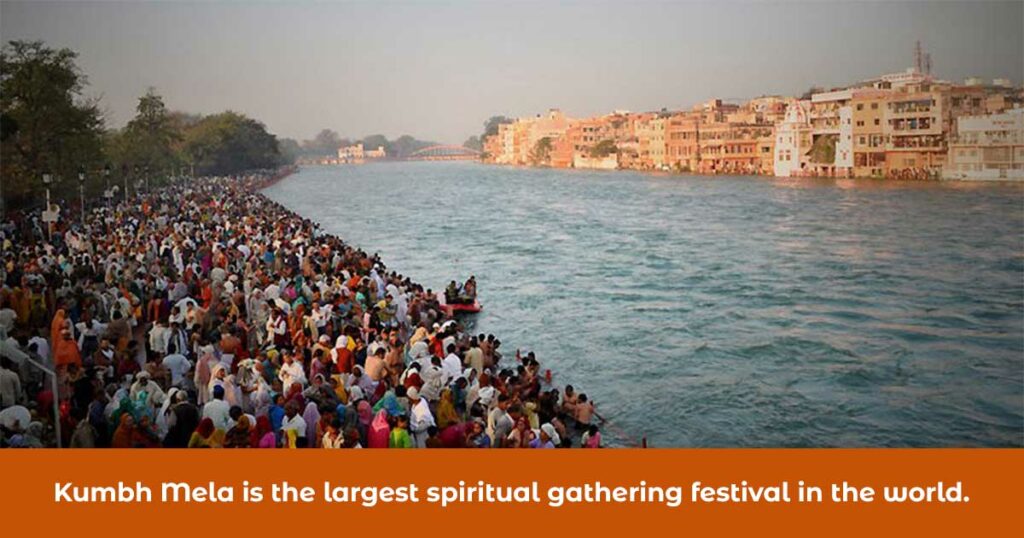
Kumbh Mela is the largest spiritual gathering festival in the world. On February 10, 2013, more than 30 million people participated in the gathering in just a single day. It has been awarded the status of cultural heritage by UNESCO.
19. Hindu Temples
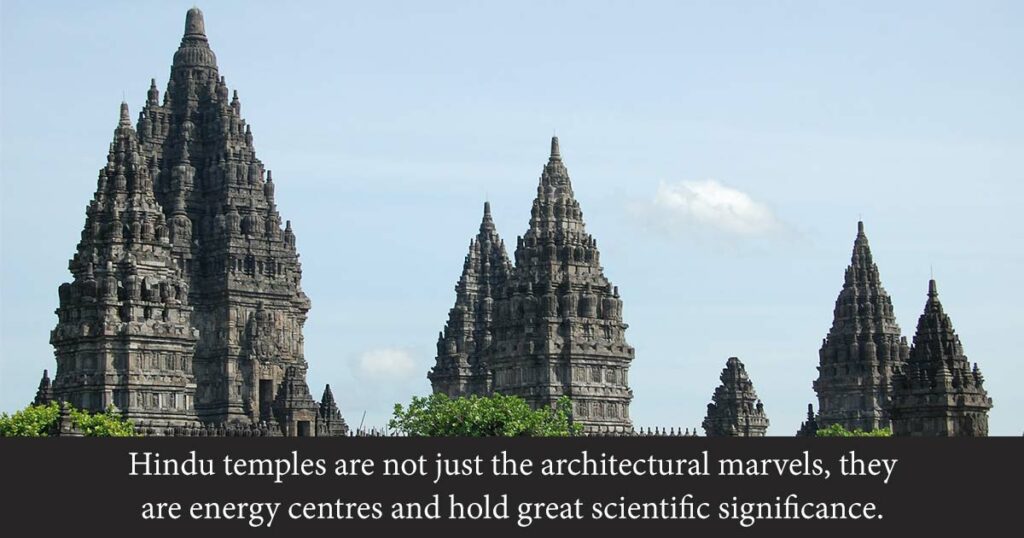
Hindu temples are not just the architectural marvels, they are energy centres and hold great scientific significance.
20. Richest Religious Structure
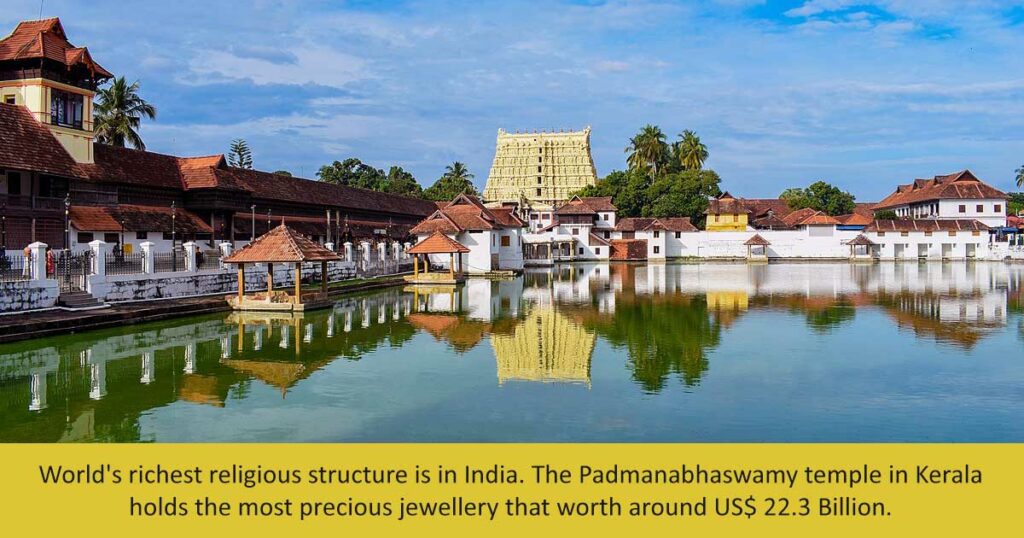
World’s richest religious structure is in India. The Padmanabhaswamy temple in Kerala holds the most precious jewellery that worth around US$ 22.3 Billion.
I hope you would have enjoyed reading these interesting facts about Hinduism.
How many of these facts about Hindusim did you already know? Let us know in the comment section below.



